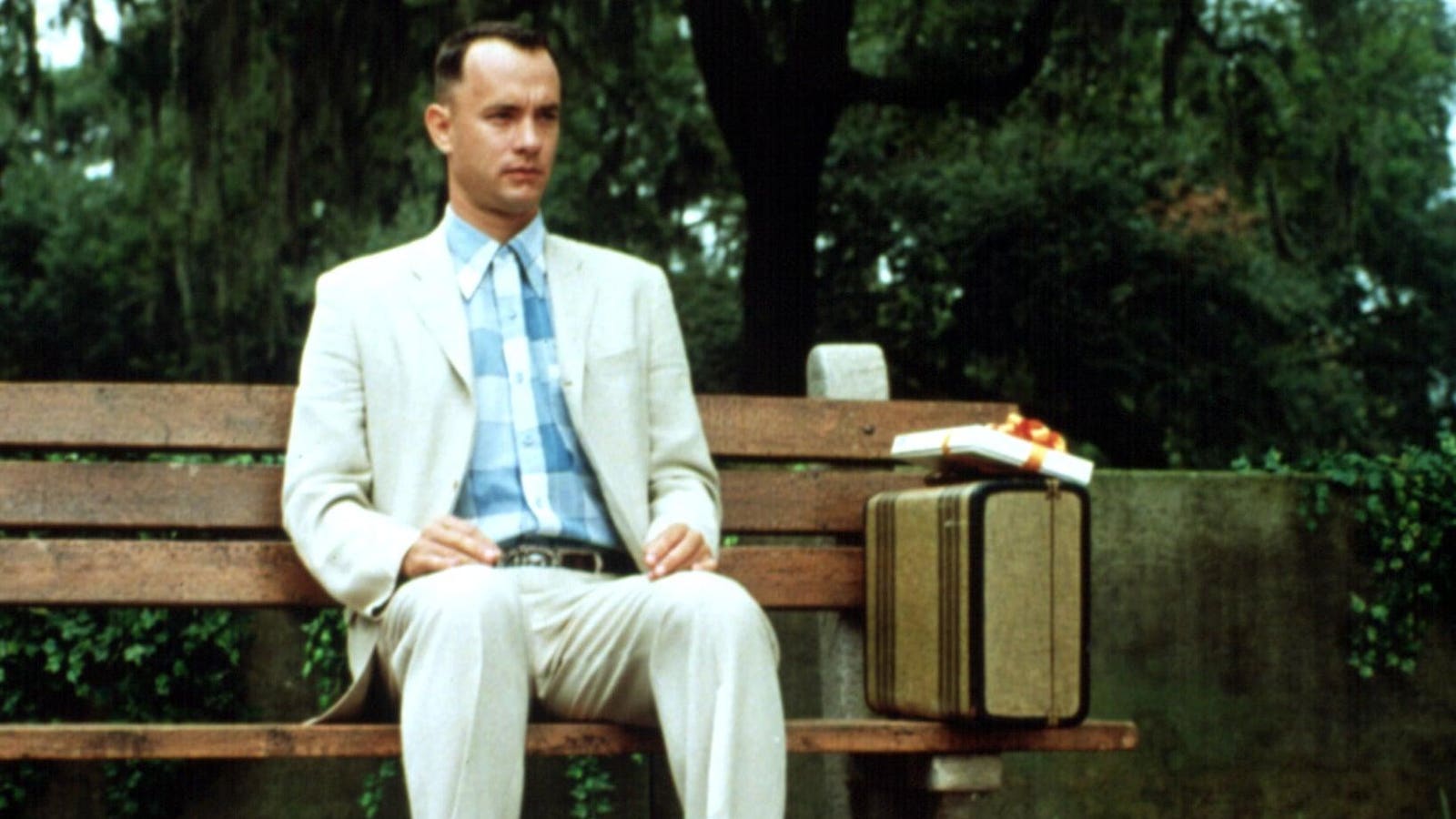Tom Hanks in Forest Gump
Paramount Pictures
When I tell people I’m a writer with a disability, I often get asked a few similar questions. One of them is, “What was the first movie to feature a character with a disability?” The answer is simple: 1994’s “Forrest Gump.” Its story of a mentally disabled young man (played by Tom Hanks) who becomes embroiled in various historical events has become something of a punchline, especially in its treatment of intellectual disability (see our anniversary post on “Tropic Thunder”). But it wasn’t the title character that made me identify with Forrest Gump. No, I saw Lt. Dan Taylor (Gary Sinise) before I saw any other character in a wheelchair besides me.
It’s been 25 years since I first saw Forrest Gump. I was too old to watch it then. In that time, my relationship with the character of Lt. Dan has changed. He’s still a character I appreciate, understand, and sometimes sympathize with. But he also embodies the same static, boring tropes we still see in disability movies today. So I wouldn’t say we’ve come a long way.
Lt. Dan meets some of the conditions found in disability stories today. Like Bryan Cranston and Sam Claflin, Lt. Dan is a white male who becomes disabled later in life, in this case during the Vietnam War. The audience is introduced to Lt. Dan as a dominant example of masculinity. As Forrest himself says, he wants to “not disappoint the audience” by showing how heroic he is. After Dan loses his leg, this heroism all but disappears.
Vietnam War stories are their own subgenre in the world of disability stories, mostly written in the 1980s and 1990s, a few years after the Vietnam War. In most of them, the men disabled in the war are bitter and resentful (another example is Tom Cruise’s “Born on the Fourth of July”). They are not necessarily bitter at the society that left them in places with no shelter or access, but at how average Americans responded to the war. In these films, disability is used to show how callous humanity has become towards veterans, not the disability itself.
Yet, while Lt. Dan shows in every way that representation hasn’t changed, for me he will always remain the first. He was the first person I’d ever seen in a wheelchair, and he spoke to a lot of what I’ve felt inside about my disability. Outside of the story, just seeing a wheelchair on screen was amazing. Of course, Dan uses a standard hospital wheelchair, which doesn’t offer his body the comfort or support it requires, much less the constant mobility of a wheelchair. (No wonder he falls off a ramp or nearly gets hit by a car!) It was clear that there were no actual disabled people on the writing team, but for a kid who’s only been using a wheelchair for a few years, something is better than nothing.
As I grew older, Lt. Dan’s cynicism became intimately intertwined with my own. In one scene, he recounts how a priest tried to comfort Dan by reminding him that one day he would “walk” beside his Lord in heaven, and that “God is listening.” These scenes, so common in Vietnam stories where antipathy toward society manifests as hatred toward organized religion, were understandable and relatable. I could understand Dan’s frustration with religion’s ableist rhetoric and able-bodied belief that disabled people are cured when they die. (I’ve had these conversations several times.)
Furthermore, the film criticizes humanity’s own cruelty and disgust towards disabled people. In the New Year’s scene, Dan and Forrest are in a hotel room with two women. When Forrest doesn’t want to do anything, the women get angry, leading Dan to defend Gump. In a fit of anger, Dan falls out of his wheelchair, eliciting abuse and laughter from the women. In this moment, the audience is reminded of their own cruelty and how disabled people are despised and pitied.
Of course, the film ruins everything it tries to deconstruct by ending with Lt. Dan showing up to Forrest’s wedding with a “magic leg” (i.e. a prosthetic leg) and the film must show Lt. Dan’s discovery of manhood, his search for redemption, and his return to normalcy at the same time.
Something is better than nothing, or at least that’s what I thought at the time. When you never see yourself represented, you cling to the first thing you see, for better or worse. 25 years later, I still count Lt. Dan as one of my favorite characters, but I understand his limitations and shortcomings. He doesn’t bring anything new to the table when it comes to disability representation; his portrayal is generic. But in a context where representation is still very limited, the few good ideas Dan was given shaped my character and reminded me of what I hope future films will promote.

